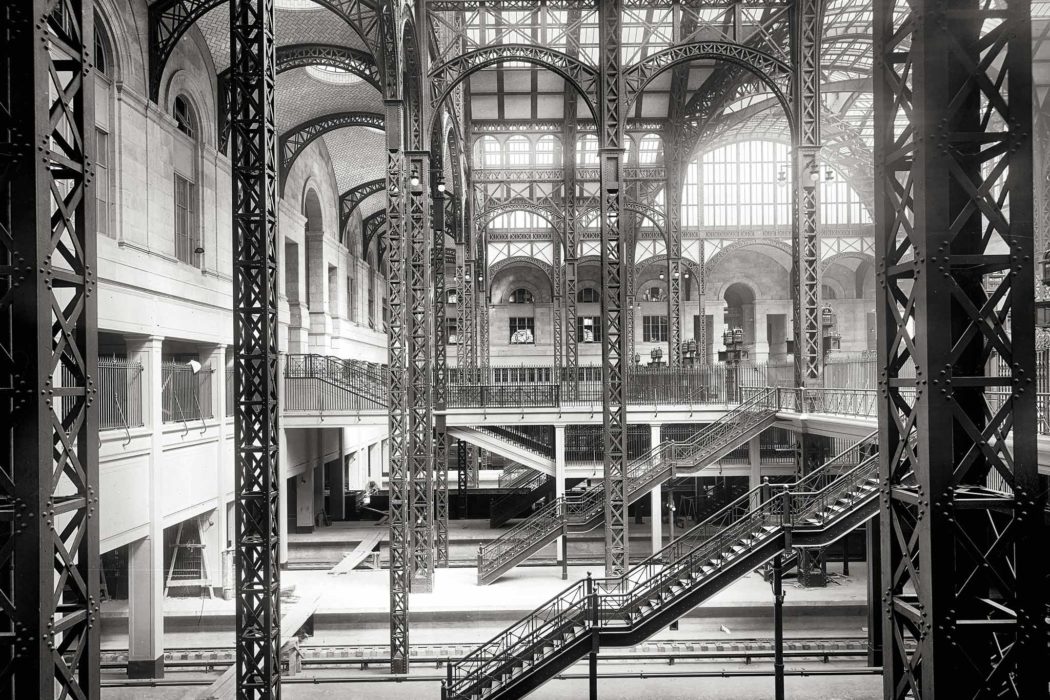IT WAS HARD TO get a decent meal in New York. By June 1, 1912, the waiters and cooks at seventeen New York hotels were on strike – from breakfast time through the dinner hour.
‘Abdu’l-Bahá’s train pulled into Penn Station from Milford, Pennsylvania, on the evening of the 4th. The new station, at Eighth Avenue and West 34th Street, had been designed by the architectural firm of McKim, Mead & White to resemble the interior of Caracalla’s baths in Rome. From the station ‘Abdu’l-Bahá was driven to 307 West 78th Street on the Upper West Side, still a stone’s throw from Riverside Park on the Hudson.
Since ‘Abdu’l-Bahá had returned from Chicago on May 11, he had been living on the top floor of the Hudson Apartment House at 227 Riverside Drive, but the landlord had asked him to leave because the constant stream of visitors was too much for his staff to handle. ‘Abdu’l-Bahá then moved for a few days to the home of Edward and Carrie Kinney, just around the corner at 780 West End Avenue. But before returning from Milford, he had asked his staff to rent the new house on West 78th Street.
There was already a gathering waiting to meet him. When speaking to them he compared the material advances of America to “a glass of the utmost transparency and purity,” the purpose of which is to bring about “divine civilization,” which acts as the “shining lamp.” Unlike the other famous Eastern visitors to America, ‘Abdu’l-Bahá did not condemn the industrial success of the nation. Instead, “the more people advance in the material realm, he said, “the more their capacity for attaining spirituality is augmented.” He continued: “The sounder the body, the greater is the resplendency and manifestation of the spirit.” The material world does not impede spirituality, but rather “the dogmas and imitations that are contrary to true science and a sound mind.”

In the morning on June 5, ‘Abdu’l-Bahá sat for Juliet Thompson for the first time. He then headed south and crossed the East River to Brooklyn, to attend a children’s event held by the Unity Club, the leading social club of Brooklyn’s Yiddish-speaking Jewish community. Admiral Robert Peary, the explorer who had returned in 1909 from his expedition to the North Pole, had invited ‘Abdu’l-Bahá to speak here. They had first met at the Persian Legation in Washington, DC, after ‘Abdu’l-Bahá had spoken at Howard University on April 23. ‘Abdu’l-Bahá had congratulated Admiral Peary on his discovery, and said that the world had been very interested to know what was to be found at the North Pole. Peary, he said, had forever relieved the public mind by ascertaining that there was, in fact, nothing there! Although Juliet Thompson wrote that Peary had been nonplussed by ‘Abdu’l-Bahá’s observation, it didn’t stop him from coming back to meet ‘Abdu’l-Bahá again and again.
‘Abdu’l-Bahá returned to Brooklyn again on June 6, spending part of the day at the home of Mrs. Newton. After taking a drive through one of Brooklyn’s public parks he returned to the Upper East Side in the evening.
On Saturday, June 8, ‘Abdu’l-Bahá returned to Penn Station. This time, his ticket was for Philadelphia.






